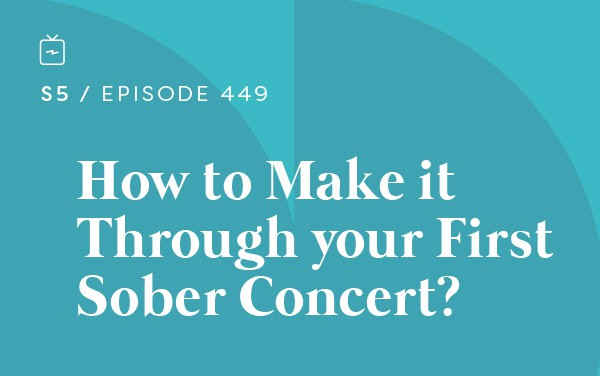
by Kris Oyen | Sep 25, 2023 | Podcast
Podcast: Play in new window | Download
Subscribe to the Recovery Elevator Podcast Apple Podcasts | | More
Episode 449 – How to Make it Through Your First Sober Concert?
Today we have Santino. He is 35 from Taunton, MA and took his last drink on May 24th, 2022.
Our latest Ditching the Booze course begins Monday October 2nd at 7:30pm EDT/4:30pm PDT and is free to Café RE members. The 5-week course is called Writing a New Narrative and is designed to help you explore your sobriety story through journaling and writing prompts.
Cafe RE – Use the promo code OPPORTUNITY to waive the set-up fee.
We have partnered with Sober Link. You can find some tips and can sign up for a $50 off promo code.
[03:05] Highlights from Paul:
Today’s question comes from Kelly in our Café RE Up Group. The question is “how do you make it through your first sober concert?”
The first of eight fantastic tips include giving yourself a little alcohol-free time before going to a concert. Once you’ve got some time under your belt, and the cravings are in check, then you can hit the green light on concerts. Regardless of how many days you have, if you are feeling squirrely the dray of the concert then sit it out. Sobriety is the priority.
Paul then shares several tips to include:
- Always have a non-alcoholic beverage in hand.
- Do not volunteer to be the DD.
- Make sure everyone you are attending with knows your intentions.
Some of the best parts about sober concerts? You will remember it. You will save money. You won’t get a DUI on the drive home.
Better Help: www.betterhelp.com/elevator – 10% off your first month. #sponsored
[10:14]: Paul introduces Santino:
Santino is a repeat guest and has maintained his sobriety since his last appearance on episode 397 where he was on day 43.
Santino is married and has one son. For fun, he loves going outside in nature to go hiking and go to the beach, but he also says that there is fun in everything since quitting drinking.
Santino had his first drink as a young teen. His mom was a single parent for a while, and he feels that he may have started drinking because the absence of his father bothered him. He learned that alcohol became a friend to him, and he feels like he used it for connection with his father and in contrast, to disconnect from her mother.
Santino joined the Air Force out of high school and found alcohol to be part of the culture. Between his early 20s and his early 30s he started deliberately planning his drinking to include before going out and drinking alone. Santino says he used a lot of rationalization that he wasn’t as bad as other people when it came to how he drank. He often pushed off having to think about it.
There wasn’t much hiding it from his spouse initially because they both drank. His hiding became more intentional as time went on, specifically after his son was born and during the pandemic. He found himself being sneakier about it. Santino started struggling with mood swings and being less communicative and didn’t want to address the fact that he needed help to quit drinking. He started to realize that this was going to destroy his family and he needed to rip the band aid off and address it. Once he addressed it with his wife, he felt freedom but was also worried about the process.
In the early days of his recovery, Santino and his wife began counseling to work on rebuilding their relationship. Santino also found that he started to feel healthier in general, was getting better sleep and did not miss the hangovers at all. Santino has been able to save money which assisted him with paying off some credit card debt he incurred while drinking. As a parent, he feels more centered and present with his son.
He attends AA frequently, listens to podcasts, and surrounds himself with others in recovery.
Santino’s parting piece of guidance: give yourself grace in all the moments that you feel that you don’t even deserve it.
Instagram – We regularly feature content here – often with goats!
Recovery Elevator YouTube
Sobriety Tracker iTunes
Recovery Elevator
Go big, because eventually we all go home.
I love you guys.
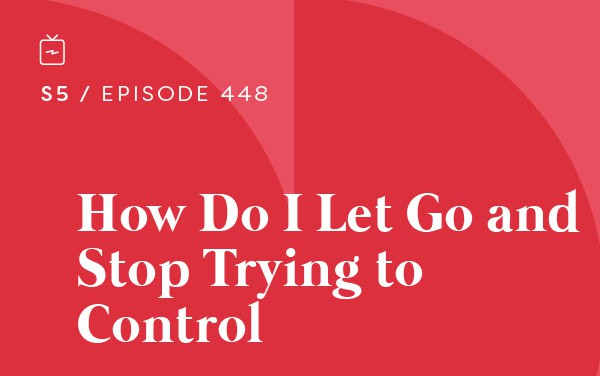
by Kris Oyen | Sep 18, 2023 | Podcast
Podcast: Play in new window | Download
Subscribe to the Recovery Elevator Podcast Apple Podcasts | | More
Episode 448 – How Do I Let Go and Stop Trying to Control
Today we have Jen. She is 48 from Boulder, CO and took her last drink on May 12th, 2021.
Our latest Ditching The Booze course begins Monday October 2nd at 7:30pm EDT/4:30pm PDT and is free to Café RE members. The 5-week course is called Writing a New Narrative and is designed to help you explore your sobriety story through journaling and writing prompts.
Cafe RE – Use the promo code OPPORTUNITY to waive the set-up fee.
We have partnered with Sober Link. You can find some tips and can sign up for a $50 off promo code.
[02:48] Highlights from Kris:
Today’s question comes from Dale in Virginia. He wants to know “how do I learn to let go of things, and stop trying to control?”
Kris feels that two themes that come up over and over in recovery are surrender and acceptance. He says there are different types of control and while some of it is normal and can be healthy, trying to control things such as other people and how they feel about us is not healthy.
Kris shares his insights about this topic and shares with us: “when I have unrest on the inside, it presents itself on the outside. When I find that inner peace, I can extend it to the world around me”.
Better Help: www.betterhelp.com/elevator – 10% off your first month. #sponsored
[11:50]: Kris welcomes Jen:
Jen joins us from Boulder, CO area and recently celebrated two years alcohol free. She is married and they have two kids and a dog. For fun Jen likes to be active outdoors and spending time with recovery friends nearby, fabric arts and yoga.
Jen didn’t drink when she was young because she learned that some family members quit drinking because they couldn’t control it. She drank very casually because she didn’t want to develop a problem, but over time peer pressure found her drinking more frequently. In grad school there was more binge drinking and hangovers. She and her husband drank only socially prior to having kids.
Jen went back to work shortly after having her first child and realized that she was missing out on a lot, so she became a stay-at-home mom. She bought boxed wine to try and save money and discovered it was too easy to refill the glass. Jen wanted to be a fun mom and used alcohol to feel less bored. Over time Jen started finding herself drinking after everyone went to bed.
After a situation that found both her husband and children concerned about her, Jen started to try quitting drinking. She had already been reading quit lit and listening to podcasts. She was able to make it over 100 days but decided to attempt moderation. She found that after a while the attempts to control how much she drank became frustrating. One day while listening to a podcast episode, she had a moment of clarity where she knew she had to quit drinking for good.
Jen feels that her husband quitting drinking shined a light on her drinking. She would make excuses to have drinks outside of the home.
Jen quit drinking the day after her birthday. She decided to join Café RE and started going on hikes with fellow RE members, hosting chats and giving back to the community. Jen finds “playing the tape forward” very helpful in addition to listening to herself and discovering what she needs. She enjoys reading self-help books instead of quit lit. Finding connections with other people and creating deep friendships was an unexpected perk Jen received in recovery.
Jen’s plan for recovery moving forward: working on her spiritual and self-discovery practice.
Jen’s parting piece of guidance: “play it forward” it is one tool that has never wavered for her. Keep your mind open and try a variety of things for your recovery.
[01:03:47] Kris’ outro:
Kris shares a story about a recent vacation with his family and how it relates to his expectations and control.
Instagram – We regularly feature content here – often with goats!
Recovery Elevator YouTube
Sobriety Tracker iTunes
Recovery Elevator
Go big, because eventually we’ll all go home.
I love you guys.
Episode 448 – How Do I Let Go and Stop Trying to Control
Today we have Jen. She is 48 from Boulder, CO and took her last drink on May 12th, 2021.
Our latest Ditching The Booze course begins Monday October 2nd at 7:30pm EDT/4:30pm PDT and is free to Café RE members. The 5-week course is called Writing a New Narrative and is designed to help you explore your sobriety story through journaling and writing prompts.
Cafe RE – Use the promo code OPPORTUNITY to waive the set-up fee.
We have partnered with Sober Link. You can find some tips and can sign up for a $50 off promo code.
[02:48] Highlights from Kris:
Today’s question comes from Dale in Virginia. He wants to know “how do I learn to let go of things, and stop trying to control?”
Kris feels that two themes that come up over and over in recovery are surrender and acceptance. He says there are different types of control and while some of it is normal and can be healthy, trying to control things such as other people and how they feel about us is not healthy.
Kris shares his insights about this topic and shares with us: “when I have unrest on the inside, it presents itself on the outside. When I find that inner peace, I can extend it to the world around me”.
Better Help: www.betterhelp.com/elevator – 10% off your first month. #sponsored
[11:50]: Kris welcomes Jen:
Jen joins us from Boulder, CO area and recently celebrated two years alcohol free. She is married and they have two kids and a dog. For fun Jen likes to be active outdoors and spending time with recovery friends nearby, fabric arts and yoga.
Jen didn’t drink when she was young because she learned that some family members quit drinking because they couldn’t control it. She drank very casually because she didn’t want to develop a problem, but over time peer pressure found her drinking more frequently. In grad school there was more binge drinking and hangovers. She and her husband drank only socially prior to having kids.
Jen went back to work shortly after having her first child and realized that she was missing out on a lot, so she became a stay-at-home mom. She bought boxed wine to try and save money and discovered it was too easy to refill the glass. Jen wanted to be a fun mom and used alcohol to feel less bored. Over time Jen started finding herself drinking after everyone went to bed.
After a situation that found both her husband and children concerned about her, Jen started to try quitting drinking. She had already been reading quit lit and listening to podcasts. She was able to make it over 100 days but decided to attempt moderation. She found that after a while the attempts to control how much she drank became frustrating. One day while listening to a podcast episode, she had a moment of clarity where she knew she had to quit drinking for good.
Jen feels that her husband quitting drinking shined a light on her drinking. She would make excuses to have drinks outside of the home.
Jen quit drinking the day after her birthday. She decided to join Café RE and started going on hikes with fellow RE members, hosting chats and giving back to the community. Jen finds “playing the tape forward” very helpful in addition to listening to herself and discovering what she needs. She enjoys reading self-help books instead of quit lit. Finding connections with other people and creating deep friendships was an unexpected perk Jen received in recovery.
Jen’s plan for recovery moving forward: working on her spiritual and self-discovery practice.
Jen’s parting piece of guidance: “play it forward” it is one tool that has never wavered for her. Keep your mind open and try a variety of things for your recovery.
[01:03:47] Kris’ outro:
Kris shares a story about a recent vacation with his family and how it relates to his expectations and control.
Instagram – We regularly feature content here – often with goats!
Recovery Elevator YouTube
Sobriety Tracker iTunes
Recovery Elevator
Go big, because eventually we’ll all go home.
I love you guys.
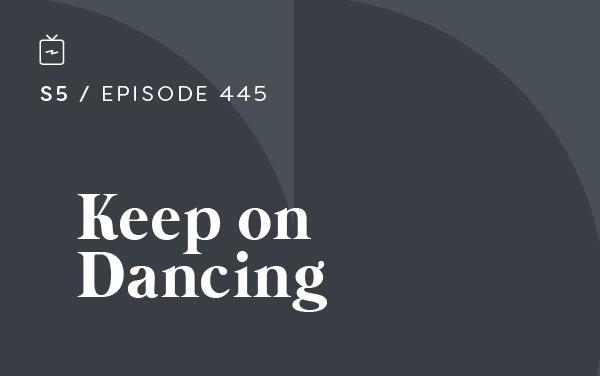
by Kris Oyen | Aug 28, 2023 | Podcast
Podcast: Play in new window | Download
Subscribe to the Recovery Elevator Podcast Apple Podcasts | | More
Episode 445 – Keep Dancing
Today we have Cindy. She is 54 from Kure Beach, NC and took her last drink on March 2nd, 2023.
We are doing an East Coast Café RE meet-up tour! NYC on Wednesday August 30th, Philadelphia Saturday September 2nd, and DC on Tuesday September 5th. For questions about the event please email info@recoveryelevator.com
This is a reminder of the suicide prevention hotline 988, which was launched one year ago. This number has fielded 5 million calls, texts, and chats in the past year alone and has saved countless lives.
We have partnered with Sober Link. You can find some tips and can sign up for a $50 off promo code.
[03:23] Highlights from Paul:
After recently watching a social media video featuring a sober influencer dancing, Paul decided to challenge this individual to a breakdancing battle. Meanwhile another sober influencer viewing this video stated that watching this video made him want to drink.
Let’s zoom out for a second.
The Tik Tok user, with millions of followers, said that watching videos of this person dancing – made them want to drink. To summarize that in two words it would be: Stop Dancing.
Then we have Paul who challenges this person to a sober break dance battle. We can summarize this statement in two words: Keep dancing.
So, listeners, keep on dancing, and never stop. If you don’t know your metaphorical or literal dance steps, stick around. The knowledge will return. If someone tells you that your dancing makes them want to drink, then that is 100% their problem. When you dance, it gives others permission to dance. You don’t need alcohol, it won’t make you better, and you’ll remember all of it.
Better Help: www.betterhelp.com/elevator – 10% off your first month. #sponsored
[08:52] Paul introduces Cindy:
Cindy is 54, grew up in Maryland but currently lives in North Carolina. She has been married for 23 years and they have two children and a dog. She works as an operating room nurse and recently got a master’s degree.
Cindy recalls first having alcohol late in high school. She was very social throughout college and enjoyed drinking a lot. She traveled a lot after college and knows that she drank but didn’t have any major consequences. Cindy says she and her husband drank but she doesn’t recall it affecting her life much. Happy Hour after work was very common for her due to the stressful job she has. Even after an incident where she was able to get out of a DUI, she still didn’t recognize that she had a problem. The drinking increased but Cindy always thought it was her husband that had the problem, not her. There were no attempts to moderate and no consequences, so the drinking continued.
Cindy started wondering why she wasn’t happy because she had a good life. Since she felt it was her husband that had the issue, Cindy started attending Al-Anon. When she returned from a travel nursing job, she realized how terrible she was feeling. She had been drinking every night, driving drunk often, and started having some consequences. Soon she found herself in an AA meeting where she had what she considers an awakening of sorts. She felt like she had found people that understood her.
Earlier this year, a podcast episode Cindy was listening spoke of living an authentic life. This really resonated with her, and she realized alcohol had to go. She started attending AA regularly after her last drink and is learning to deal with her feelings and learning from them. Cindy utilizes many tools to process how she feels and knows that alcohol is not the answer.
Cindy’s favorite resources in recovery: recovery podcasts, being active in AA
Cindy’s parting piece of guidance: If you are contemplating stopping drinking, think about why you are drinking.
Cafe RE – Use the promo code OPPORTUNITY to waive the set-up fee.
Instagram – We regularly feature content here – often with goats!
Recovery Elevator YouTube
Sobriety Tracker iTunes
Recovery Elevator
I love you guys.
Go big, keep dancing, because eventually we’ll all go home.
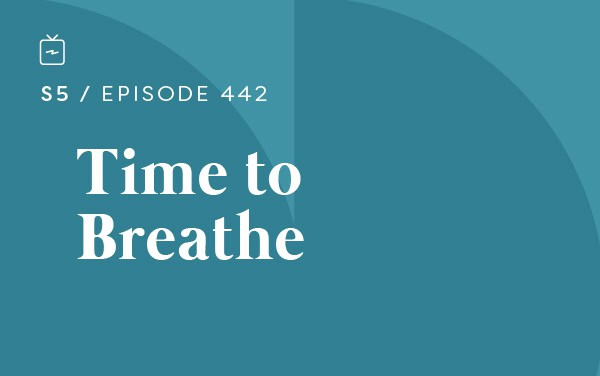
by Kris Oyen | Aug 7, 2023 | Podcast
Podcast: Play in new window | Download
Subscribe to the Recovery Elevator Podcast Apple Podcasts | | More
Episode 442 – Time to Breathe
Today we have Jeff, he is 35 from Salt Lake City, UT and had his last drink on April 6th, 2023.
Shout out to the Café RE chat hosts. Thank you for continuing to hold space for our community and for creating an environment where we can come together and heal.
Go Brewing. Use the code ELEVATOR for 15% off.
[03:46] Highlights from Kris:
Kris finds sober anniversaries a good opportunity to reflect on where he was and where he is today. He asks himself questions such as “What have I gone through? How have I been able to meet the challenges placed in front of me? Am I moving in the direction I want to in my life?”
In active addiction Kris was not able to show love to himself. He knew that the things he was doing were hurting other people and himself. He knew his wife, kids, parents, and friends all loved him, but he couldn’t let the love in. He was stuck in the loop of “I’m not enough, I’ve screwed up too much, I deserve to feel this way.”
If you’re listening, and you’re there today, know that you are not alone. Many of us have been there and know how hard it is.
We don’t have to be perfect RE… that’s never going to happen. All we have to be is willing. We have to be willing to be honest with where we are today. Without judgement, where are things in our life right now? What is the next right thing to step into our new future? Where can we find support? Don’t worry about trying to resolve every issue in your life all at once. Just take little bites.
Better Help: www.betterhelp.com/elevator – 10% off your first month. #sponsored
[09:40] Kris introduces Jeff:
At the time of recording, Jeff is celebrating 90 days of sobriety and plans to celebrate with cacao. He is 35 and lives in Salt Lake City with his wife and two dogs. For fun Jeff enjoys mountain biking, skiing, running, and music is a big part of his life.
Growing up, alcohol was always present at celebrations hosted by his parents and their friends. It was normal for him to see people drink to excess. Jeff’s first drink was when he was 16 with some friends and stolen rum. Early on he recognized that his drinking was different than other people’s. On the outside, he was successful at school but was suffering from depression that alcohol helped him escape from.
After high school Jeff went to the east coast to play hockey for two years. This required a lot of discipline, so Jeff’s drinking was limited to one day each week. He never moderated and usually ended up blacking out.
When Jeff turned 20, he started college where he played hockey and studied engineering. During his freshman year he got a bad concussion and struggled a lot with the side effects afterwards. He initially used drinking to self-medicate the side effects but drinking started to become the answer to everything.
After college Jeff moved back to Alaska for a job. He had his own place with two roommates who he frequently drank with late into the night. He was able to keep up with work and other activities so in spite of some health consequences, he didn’t feel he had a problem.
Jeff started questioning his drinking after he caught himself drinking and driving frequently. He found Allen Carr’s book and was able to stop drinking for 11 days. Since then, he has been in the cycle of quitting and then starting back with different lengths of time between drinks.
Therapy has been helpful for Jeff over the last three years and his wife has been very supportive. Connection has become very important to him.
Jeff’s plan in recovery moving forward: moving forward with integrity and owning who he is.
Jeff’s parting piece(s) of guidance: it’s ok if you think this is hard because it is hard. Even just listening to this podcast is a huge win. Recovery is not a straight line.
Cafe RE Use the promo code OPPORTUNITY to waive the set-up fee
Recovery Elevator YouTube
Sobriety Tracker iTunes
Recovery Elevator
You’re the only one that can do this, but you don’t have to do it alone.
I love you guys.
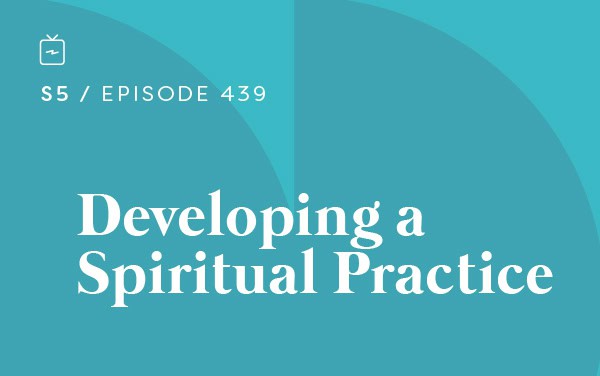
by Kris Oyen | Jul 17, 2023 | Podcast
Podcast: Play in new window | Download
Subscribe to the Recovery Elevator Podcast Apple Podcasts | | More
Episode 439 – Developing a Spiritual Practice
Today we have Liz, she’s 38 from LaVale, MD and took her last drink on December 31st, 2022.
Thank you to the Café RE chat host, you all do an incredible job!
Athletic Greens
[02:22] Highlights from Paul:
This is not a religious podcast. Paul feels that religion and spirituality are not two sides of the same coin.
When we drink alcohol, spiritually, our electrical current to the universe is severed. In fact, in many cultures, the name alcohol literally means, soul sucking spirit. Then mentally, the chemical alcohol turns our brains into tepid soup. After that, we have the physical component – pancreatitis and liver failure come to mind.
What is spirituality? What is a spiritual practice? We are connecting with the self. We are connecting within. You become more ocean and less wave. In short, spirituality is connection with the self, which then leads to a connection with nature, the universe, a higher power, and some may call it God. Why do we drink? Why did we drink? To get this sense of connection.
Paul shares many examples of spiritual practices and reminds us that we don’t have to wait for the normal order of healing in order to implement some these. We can start right now.
Better Help: www.betterhelp.com/elevator – 10% off your first month. #sponsored
[11:03] Paul introduces Liz:
Liz is from a small-town Maryland. She is married with two kids; she is a registered nurse and attending school as she is working toward her master’s degree. She enjoys spending time outdoors: kayaking, hiking, camping, being a soccer mom.
Liz grew up in a tightknit family and was the youngest of three sisters. She first tried alcohol with a cousin when she was in 6th grade. She didn’t really enjoy it and thought it tasted terrible. She wasn’t a big drinker in high school, just the occasional party.
She drank like everyone else during college and worked in the service industry. It was normal for her to be the last person drinking at parties, but she worked and went to school with little issue.
Liz’s drinking escalated when she began nursing school. She was already married with two kids and struggled balancing it all. She used alcohol as a stress reliever. Her first job after graduating was in the ICU working night shifts. She would drink after her shifts and tried to hide the amount of drinking from her husband. She still didn’t feel she had a problem. Liz says her moderation attempts found her feeling more stressed and caused mood swings.
Liz went to inpatient rehab and was able to stay sober for six months. She started attending AA and using the tools she learned in rehab. Her relapse happened on a soccer trip after another parent called her out for not drinking which triggered her. She now feels that her lack of planning or having a network contributed to the relapse as well. She lost control of her drinking. Over the next few years, she spent a lot of time in treatment and trying to figure out what was causing the issues and what needed to change.
Liz got a sponsor with AA and started the steps right away after her last drink. She sometimes gets cravings but plays the tape forward. She knows that if she drinks, she will not be able to be there for any of her family if they need her. Liz made a post on Facebook about her recovery and received a lot of love and many messages from people regarding their own struggles. Liz says that she feels so much freedom now that she is alcohol free and has found her higher power.
Liz’s favorite resources in recovery: AA, recovery podcasts
Liz’s parting piece of guidance: don’t ever give up, no matter what happens you can wake up the next day and keep going.
Cafe RE Use the promo code OPPORTUNITY to waive the set-up fee
Recovery Elevator YouTube
Sobriety Tracker iTunes
Recovery Elevator
Go big, because eventually we all go home.
I love you guys.







